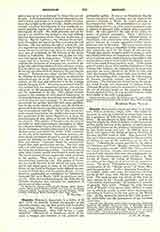

Menzini, BENEDETTO; priest and poet, b. at Flor-ence, 1646; d. at Rome, September 7, 1704. His family being poor, he early gave himself up to teaching, becoming a professor of belles-lettres at Florence and at Prato. He was already in Holy Orders. In 1681 he failed to obtain the chair of rhetoric in the University of Pisa partly because of the jealousy of other clerics, and partly because of the acrimony constantly shown by him in his words and acts. In 1685 he went to Rome and enjoyed the favor of Queen Christina of Sweden, until her death in 1689. Pope Innocent XII then gave him a canonry, and appointed him to a chair of rhetoric in one of the institutions of the city of Rome. Following the models provided by the poems of Chiabrera and Testi, Menzini wrote his Pindaric “Canzoni eroiche e morali” (1674-80). These observe the Greek division—strophe, antistrophe, and epode, and deal with subjects that were also engaging the attention of the contemporary poet Filicaja, e.g., the freeing of Venice, the taking of Budapest. Some seventeen of his elegies treat of matters of various interest. The poem “Il Paradiso terrestre” is almost a continuation of the “Mondo creato” of Tasso, Menzini’s favorite poet. In the “Academia Tusculana”, in mingled prose and verse, he introduces leading spirits of the time, who discuss subjects of many sorts. The pastoral note was struck by him with no little success in his “Sonetti pastorali”, and in his “Canzonette anacreontiche” he produced a number of graceful little lyrics. Perhaps the most famous work of Menzini is his satires, some thirteen in number, in which he assails in acrid terms the hypocrisy prevailing in Tuscany in the last years of the Medici rule. In like fashion he lashes in his “Arte poetica” the artificiality and the uncouthness of the versifiers of his time.
J. D. M. FORD

